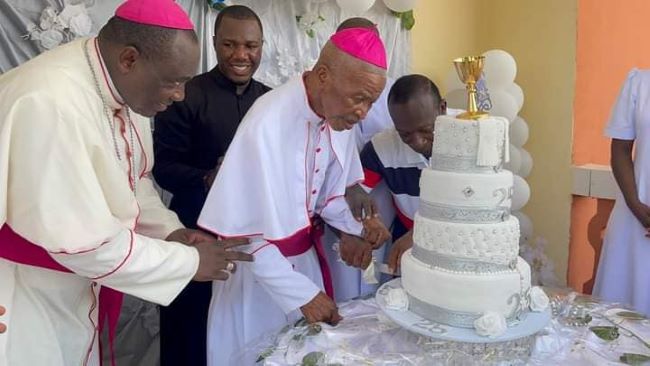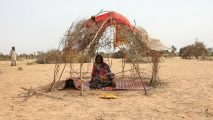Categories
Archives
- April 2024
- March 2024
- February 2024
- January 2024
- December 2023
- November 2023
- October 2023
- September 2023
- August 2023
- July 2023
- June 2023
- May 2023
- April 2023
- March 2023
- February 2023
- January 2023
- December 2022
- November 2022
- October 2022
- September 2022
- August 2022
- July 2022
- June 2022
- May 2022
- April 2022
- March 2022
- February 2022
- January 2022
- December 2021
- November 2021
- October 2021
- September 2021
- August 2021
- July 2021
- June 2021
- May 2021
- April 2021
- March 2021
- February 2021
- January 2021
- December 2020
- November 2020
- October 2020
- September 2020
- August 2020
- July 2020
- June 2020
- May 2020
- April 2020
- March 2020
- February 2020
- January 2020
- December 2019
- November 2019
- October 2019
- September 2019
- August 2019
- July 2019
- June 2019
- May 2019
- April 2019
- March 2019
- February 2019
- January 2019
- December 2018
- November 2018
- October 2018
- September 2018
- August 2018
- July 2018
- June 2018
- May 2018
- April 2018
- March 2018
- February 2018
- January 2018
- December 2017
- November 2017
- October 2017
- September 2017
- August 2017
- July 2017
- June 2017
- May 2017
- April 2017
- March 2017
- February 2017
- January 2017
- December 2016
- November 2016
- October 2016
- September 2016
- August 2016
- July 2016
- June 2016
Featured
 Bishop Francis T. Lysinge @ 25!
Bishop Francis T. Lysinge @ 25!  Understanding the Biya Francophone regime’s support for the Israeli genocide in Gaza
Understanding the Biya Francophone regime’s support for the Israeli genocide in Gaza  Poverty under Biya: Cameroonians embrace Chinese language for brighter futures
Poverty under Biya: Cameroonians embrace Chinese language for brighter futures  Cameroon is broken: Who can fix it?
Cameroon is broken: Who can fix it?  Ethiopia: U.S Senator Cardin Statement on the Killing of Bate Urgessa
Ethiopia: U.S Senator Cardin Statement on the Killing of Bate Urgessa
Most Commented Posts
 4 Anglophone detainees killed in Yaounde
4 Anglophone detainees killed in Yaounde
19 comments Chantal Biya says she will return to Cameroon if General Ivo Yenwo, Martin Belinga Eboutou and Ferdinand Ngoh Ngoh are sacked
Chantal Biya says she will return to Cameroon if General Ivo Yenwo, Martin Belinga Eboutou and Ferdinand Ngoh Ngoh are sacked
13 comments Anglophone Nationalism: Barrister Eyambe says “hidden plans are at work”
Anglophone Nationalism: Barrister Eyambe says “hidden plans are at work”
12 comments The Anglophone Problem – When Facts don’t Lie
The Anglophone Problem – When Facts don’t Lie
12 comments Largest wave of arrest by BIR in Bamenda
Largest wave of arrest by BIR in Bamenda
10 comments
Latest Tweets
Featured
-

Bishop Francis T. Lysinge @ 25!
-

10 Million Cameroonians lived on less than $1.80 per day
-

Football: Xavi to remain as Barcelona coach
-

Biya regime delays bond sale amid regional market strain
-

Historic agreement between Nigeria and Cameroon to tackle wildlife crime
-

Southern Cameroons refugees in Nigeria receive farm seedlings
-

Douala: Investment Forum wraps up with honors for investment champions
© Cameroon Concord News 2024
6, August 2018
Southern Cameroons Crisis: Talking tough will not help matters 0
The Southern Cameroons crisis that has given the country a bad name is gradually getting into a critical phase. The country’s minister of territorial administration is not displaying the maturity leadership imposes on people. He is still talking tough and this is hurting any chances for peace.
If talking tough could address many issues, the Southern Cameroons crisis that has given the country a very bad name, could have been addressed. As the situation deteriorates, it will be wise for both parties to keep it low. Tough language has never really resolved any issue, but people like Atanga Nji are yet to understand that. Words are like bullets. Once they are out of the mouth, they cannot be recalled and they have the potential to ruin any efforts at bringing back peace to a people.
Atanga Nji displayed this primitive tendency a few days ago while receiving some Fako chiefs who had been released by Southern Cameroonian fighters after protracted negotiations. For Atanga Nji, the country’s territorial administration minister, who received the chiefs in Yaounde, he used the occasion to provoke Southern Cameroonian fighters.
He promised tracking down all the fighters who are in the jungle, adding that they and their progeny would be made to pay for their crimes if they did not come out of the jungle that has been serving as a five-star hotel to them and a green jail to all those arrested.
Mr. Atanga Nji who is not a respected minister in Cameroon, failed to understand that if it was easy to arrest the fighters in the thick equatorial jungle of the Southwest region, that would have been done a long time ago. His constant use of unfriendly language has unfortunately led to the killing of many uniformed officers.
Over the last few days, not less than 8 uniformed officers have been killed in Southern Cameroons and this has resulted in renewed violence, with the ordinary civilian suffering for something he knows nothing about.
Mr. Atanga Nji and his Yaounde masters should figure out that there will never be a total military solution to this issue. Southern Cameroonians are determined to stay the course, and only genuine and sincere dialogue will stop tempers from flaring.
The fighters on the ground are people who hold that they have nothing to lose. They have already lost everything. Their dignity is gone. Their future has been ruined. And some have lost their families to this unnecessary war.
However, it is also important to mention that arresting chiefs and Fons, does not give the revolution a good name. South West chiefs just like their North West counterparts are not against the revolution. They cannot openly state their disagreement with what the government is doing.
It is therefore absurd to kidnap them. They are Southern Cameroonians to the core. However, they must always do their job. They are public servants and they must pay allegiance to the government that pays them.
For the government, it has a lot to gain. A restoration of peace across the country will enable it to have total control of its territory and resources. The existence of armed groups robs it of its revenue sources.
The Southern Cameroons crisis has hit the Yaounde government like a ton of bricks. The country’s economy is suffering. Its Automatic Teller Machines (ATM) seem to be out of service. State corporations located in Southern Cameroons are already feeling the heat.
Pamol, a palm oil production corporation located in Lobe, a small town in Ndian Division, has finally shut its doors as the fighting between Southern Cameroonian fighters and army soldiers takes a turn for the worse. This revenue stream has stopped flowing and Yaounde is really ill-at-ease.
Pamol’s closure is bad news for the government. More than three thousand Pamol workers are today unemployed and living in permanent fear, as the fighting between the warring factions rages on.
Schools and courts in the region have been closed for almost two years and it is increasingly obvious that the Yaoundé government has lost control of certain parts of the two English-speaking regions.
But it is not only Pamol’s closure that is causing the government nightmares. The Cameroon Development Corporation (CDC), one of the country’s major employers, is also going through a rough patch.
Some of its factories have closed shop, while the fighters have deliberately set some of its infrastructure ablaze as part of their economic sabotage campaign. Malende, a small town located some 6 km from Muyuka, has witnessed huge unemployment rates. The corporation’s rubber factory was set ablaze sometime last month by some unidentified men and this has hit CDC like a ton of bricks.
In other plantations, many workers have simply deserted. The fighting is disrupting economic activities in those plantations and many workers hold that it is better to quit than be caught up between the devil and the deep blue sea.
The fighting, coupled with the derisory salaries the corporation pays to its workers, has made CDC unattractive and this is gradually eroding the government’s tax base.
Similarly, government revenue has taken a nosedive, as the national oil refinery located in the Southwest region is also facing some major challenges. While falling global oil prices are spreading pain and suffering among oil exporters, the declining oil output and constant attempts by Southern Cameroonian fighters to bring down the country’s lone oil refinery are leaving the government in a huge messy economic quandary.
The crisis is a true nightmare to this once-upon-a-time oasis of peace. It is, indeed, a millstone around the government’s neck. Things might soon spiral out of control as the fighters threaten to attack SONARA at the slightest opportunity. They argue that they have never gained from the oil and that it will be better for everybody to suffer the consequences of the government’s recklessness.
These planned acts of sabotage do not augur well for a government that is already on its knees. It is already having a tough time paying civil servants and this is causing fear among the civil servants, especially the military, many of whom want to desert and seek a better life for their families abroad.
The government has a bigger crisis on its hands. It had not properly analyzed its decision before implementing it. It is gradually recognizing that declaring war on its own people is a big mistake, as the impact of the war is spreading into East Cameroon. With a large influx of internally displaced people into East Cameroon, housing and food have become very expensive in those cities receiving the internally displaced.
Douala and Yaounde have been home to most of this internally displaced people and these two cities lack the proper infrastructure to handle such situations. And the situation is declining very fast.
Declining oil revenues and falling production of some of the country’s major employers like CDC and Pamol implies that the government is heading for a financial squeeze. This is exactly what is causing frustration within the government. Many development projects have been suspended due to lack of resources.
Cameroon is indeed at the crossroads. With elections around the corner and the fighting in the English-speaking regions raging on, it is clear that a disaster is lurking somewhere and before long the country could be transformed into an inferno.
The frustration in East Cameroon is also mounting, as many people fall into abject poverty. It is becoming increasingly clear that Mr. Biya is not the man to lead the country to the land of promise. His time is up and there is a consensus around the world that he has overstayed his welcome.
It is time for him to bow out if he does not want the country to sink into a bitter civil war; the type that has destroyed many African countries ruled by dictators. The scourge of war seems to be advancing towards Cameroon and many people around the world are worried that if the Sword of Damocles descends on Cameroon, the entire sub-region might be pushed into unprecedented chaos.
Tempers are already flaring in the country. For 36 years, Mr. Biya has only favored people from his own region. Though the center and south regions constitute less than 10% of the country’s population, they make up 80% of the country’s government; a situation that is hurting many Cameroonians from other regions of the country.
It is therefore in the government’s interest to change its language. Speaking the language of peace is not a sign of weakness. Atanga Nji must understand that he will never win this war. If he thinks that he will be going to Washington, Houston, Atlanta, Dallas, London, Ottawa, Montreal, Toronto and other cities around the world to kidnap Southern Cameroonians living there, then he has not yet figured out the full extent of the government’s previous mistakes.
The Southern Cameroonian Diaspora has a huge war chest and it is ready and willing to make the Yaounde government pay for its mistakes. Southern Cameroonians have dollar millionaires who are capable of keeping the government in this pretty military mess for many decades.
The government had underestimated the will of the people of Southern Cameroons to right the wrongs of the past. For many of them, their fate is worse than death and they have very little time to be around this planet. They want to establish their own country and even ensure that future generations do not deal with such time-consuming and energy-sapping challenges.
The fighters are, of course, receiving huge support from the Diaspora that has transformed this issue into an opportunity for its strength and influence to be felt. With some 4 million Southern Cameroonians out of the country, it is likely that more money will be flowing to Cameroon to feed the war that has rushed many young men and soldiers to an early grave.
The government had never thought that the Southern Cameroonian Diaspora could be this influential. It had also underestimated the anger of those living abroad. Southern Cameroonians started living the country as far back as 1965 when the country’s first president, Amadou Ahidjo, displayed his huge appetite for dictatorship. For many Southern Cameroonians, it was better to live abroad a free man than to live at home in invisible chains.
Today, that Diaspora has reduced the Yaounde government to a symbol of mockery. The Diaspora is financing the war in the country and it is willing to bring down the entire country. Gradually, the Francophone Diaspora is also joining in. Francophones now know that if the current system is not brought down, their own children will be caught up in a pretty mess, as Southern Cameroonians already have a foot out of the fake union that was put together by Ahidjo, Foncha and Muna who are all dead and gone.
If the government wants to address this issue, then it has to change its language. The current language is not delivering the desired results. It must also understand that it must make lots of concessions if it wants peace to return to the country. There are many lessons for the government to learn. This situation should leave it a sadder, but a wiser government.
It must never underestimate the power and will of the Diaspora. The Diaspora will continue to destabilize the country if the government does not seek genuine reconciliation through inclusive dialogue. The ball is in the government’s court. The Diaspora holds the trump card. Its vast resources and influence over the fighters make it a partner in any negotiations. The government has to meet the Diaspora halfway if it is thinking of peace.
Any Dialogue will not take place in Cameroon. The Diaspora holds that the government is not worthy of its confidence. Washington or Ottawa have therefore been chosen as the place for any talks. The Canadian government, in particular, will be willing to mediate.
Canada is noted for its peace-keeping and peace-building initiatives across the globe. It is therefore the right peace-broker in this situation. It has lots of lessons for Cameroon as it has once dealt with a similar situation. The government must come out of its current position. Grand-standing and posturing will not make things better. Humility and recognition of its mistakes will calm down tempers.
By Kingsley Betek in Yaounde